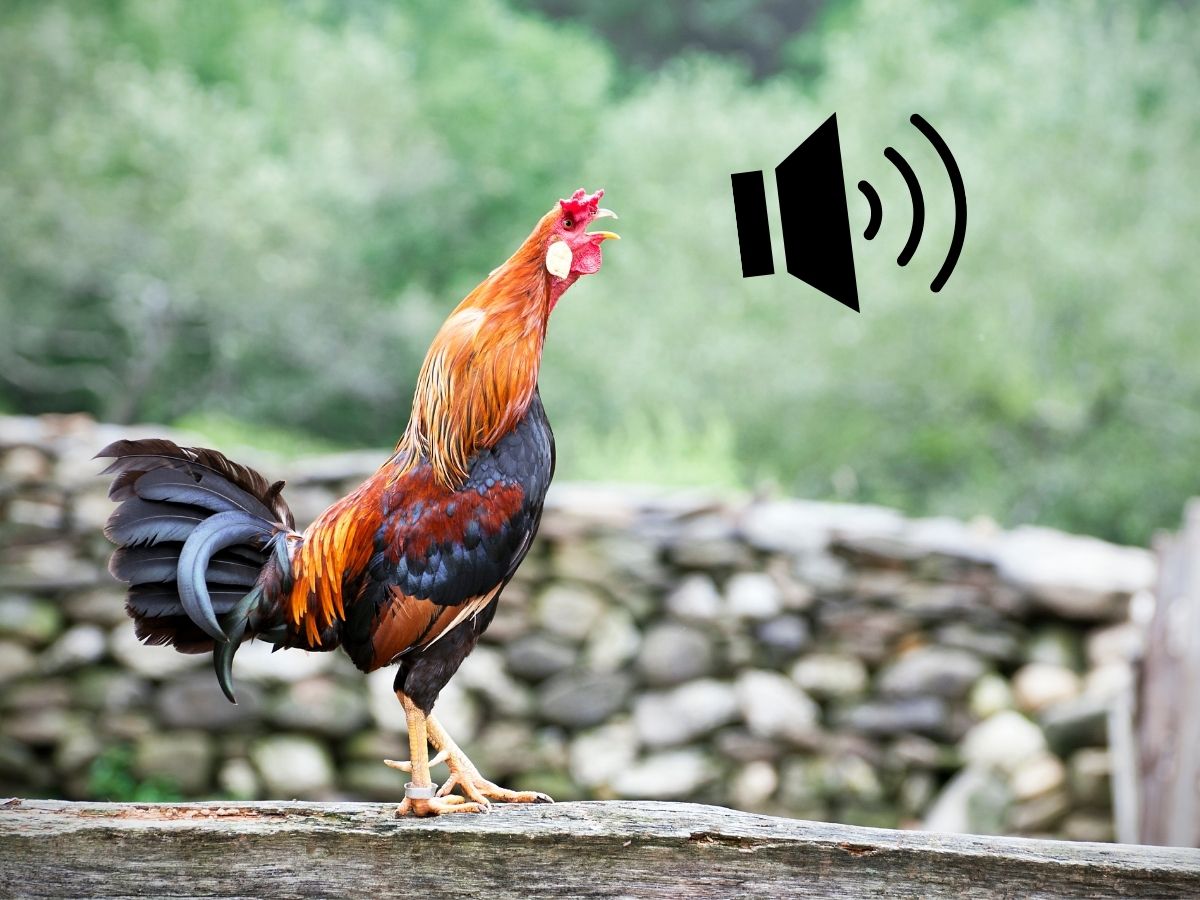If you have ever owned chickens, you will know there is one thing they cannot do, which is stay quiet! Chickens make many different calls and sounds throughout the entire day. You may wonder whether they communicate with each other and how you can understand the various noises.
Chickens have over 24 distinct sounds and noises. They use specific calls to communicate with the rest of the flock, alerting the other chickens to anything from food to a nearby predator. The most commonly heard noises from chickens include the egg song, broody hens, and an alarm call.
Chickens often use different sounds and noises in succession to create a sort of dialog and talk to each other, much like humans do. Watching them cluck away every day can be fascinating, but what is even better is being able to understand what exactly they are talking about.
Contents
The Four Most Common Chicken Noises
As chickens have over 24 distinct calls and sounds, it will be hard to grasp the entirety of their language in one go. Below is a compiled list of the four most common chicken noises to help you get started with understanding your chickens better.
The First Most Common Chicken Noise: The Egg Song
Anyone who owns hens should already be familiar with the egg song, as it is pretty hard to miss. When you have a couple of hens laying eggs in the coop, they will understandably get very excited about the prospect of their future chicks.
Once a hen has started laying an egg, she and the other hens who are seemingly cheering her on will take up in a chorus of gakels. The chorus sounds a little like ‘buk-buk-buk-ba-gawk.’ The noise only continues to get louder once an egg has been laid, a sort of congratulations to the mother.
The Second Most Common Chicken Noise: Broody Hens
Like many mothers, a broody hen awaiting the safe arrival of her child should never be disturbed. A mother that gets upset if someone comes too close to her nest will growl at the trespasser and, in some cases, throw a tantrum which involves constantly clucking loudly and urgently until the danger has passed.
The Third Most Common Chicken Noise: Sound The Alarm
The first alarm sound is for the danger that comes from the ground. If a chicken spots a fox or cat, they will start a repetitive clucking that grows in urgency to warn the flock. The second alarm sound is for the danger from the air, like a hawk – this noise is heard as more of a loud shriek.
The Fourth Most Common Chicken Noise: Happy Murmuring
Chickens foraging in an open space constantly make low noises as they search for food – this indicates a sound of contentment and safety. They are telling each other; that life is all good – there is no danger here.
What Can You Do About Noisy Chickens?
Unfortunately, there is not a lot that you can do about noisy chickens. Their calls and sounds are a vital part of a healthy flock communicating with each other. However, you can opt for quieter breeds, especially if your neighbors have started to complain.
Silkies, Brahmas, Barred Rocks, and Speckled Sussex, are all docile and easy-going breeds that may make your chicken-owning life a little quieter.
Conclusion
Chickens have an impressive vocabulary, with over 24 distinct calls and sounds identified. They use these noises to communicate and alert each other to things such as food, nearby predators, or to celebrate the laying of eggs.




